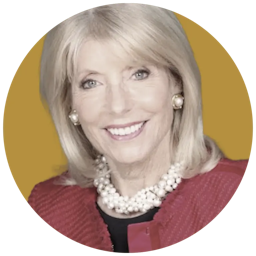Scotsman Capital Runs Itself On Old-Fashioned Values
This article is from the archive of The New York Sun before the launch of its new website in 2022. The Sun has neither altered nor updated such articles but will seek to correct any errors, mis-categorizations or other problems introduced during transfer.

Investing with Vince Farrell of Scots man Capital Management must be like buying the perfect pair of dancing pumps – comfortable, not too tight not too loud, and fully capable of jitter bugging if necessary.
This response may strike a chord with fans of CNBC’s “Squawk Box,” where Mr. Farrell is a frequent guest host. They will have seen him reduce the most complicated investment conundrums to plain language and quell the emotions of the moment. He’s down to earth and he knows his stuff.
For example, when recently asked about his thoughts on the market, he summed up in this way: “The market can’t do anything until interest rate hikes come to an end. Since 1971, there have been six major periods in which the Feds raised rates. The market almost always went up afterwards.”
Mr. Farrell believes that Fed Chairman Alan Greenspan wants to raise long-term rates, and will continue to boost short term rates until long rates get to 4 1/2%. So wait. It seems so obvious.
How did he acquire this reassuring presence? The old-fashioned way – he earned it. Mr. Farrell was a co-founder in 1982 of asset manager Spears, Benzak Salomon & Farrell, and for the past 23 years, he has been associated with that organization. SBSF managed about $3.5 billion when it was bought by KeyCorp in 1995 as part of that bank’s quest to build an asset-management business For the past 10 years, Mr. Farrell has served in various capacities at KeyCorp’s $55 billion Victory Capital Management Division, including as chief investment officer and, most recently, as chairman.
In April of this year, Mr. Farrell decided to start over. He joined two former senior Victory colleagues – Charles Crane and James Gallop – at Scotsman Capital Management. The firm, founded in January 2004, is very much in the SBSF tradition. Scotsman is a long-only shop, investing in mid- and large-cap stocks, aiming to outperform the S&P 500.
This approach seems so black coffee in today’s skim caramel macchiato world. Could it possibly work? The results so far are extremely promising. In deed, the principles are much the same as those that led the highly successful SBSF to outperform the market for many years.
Mr. Farrell and his colleagues specialize in “value” investing, and in being extremely disciplined in how they buy and sell stocks. They use traditional measures of value such as price-to-earnings multiples, valuations compared to growth rates, and discounts to estimated present value. They are particularly keen to save investors from losing money in market downdrafts, as well as participating when stocks move up.
They do not attempt to mimic the S&P. Instead, they are opportunistic. If there are a number of attractive stocks in energy, for instance, they load up and carry an overweight position in the sector until values change.
They typically have a highly concentrated portfolio with only 25 to 30 stocks. Turnover in the portfolio has been low.
What kind of companies do they buy? They look for managements with integrity (this theme recurs often with these fellows), and with proven track records. They are partial to companies with established brands (Kraft, Microsoft) and market positions (BP, Pfizer), and with clear missions (the Gap, Anheuser-Busch).
They view this careful first screening of stocks to be their most effective risk management tool. Beyond that, the group minimizes losses by adhering to established sell points. Though they will tolerate temporary losses in the portfolio, they do not fall in love with stocks and ride them down.
This is a team undertaking. All three partners have to agree on the stocks in the portfolio. Not only do the partners evidently concur on investment style, they appear to have simpatico lifestyles as well. All three appear to value old-fashioned rewards, such as spending time with their families.
In Scotsman’s mission statement, management describes itself as conducting its affairs “with honesty, honor, humility and humor.” Humor? Humility? These are commodities about as rare on Wall Street as customer service in the airline industry.
Indeed, Mr. Farrell and his colleagues have more modest ambitions than most. They charge a 1% (maximum) management fee and they are not pursuing pension money (because they don’t want to have to deal with pesky and inhibiting consultants – and who can blame them?). Instead, they are taking mainly high-net-worth individual and not-for-profit accounts. So far, they have raised more than $400 million. They intend to build an enduring business devoted to consistent and rewarding investing of their client’s capital.
Blueberry moccachino double espresso, anyone? Maybe black coffee sounds pretty good.

